The content of the article
Frequent urges to go to the toilet are perceived by many women as a sign of pregnancy. Indeed, there is some truth in this. The fact is that when a fertilized egg descends into the uterus, the uterus itself becomes very sensitive, it quickly grows and moves. Even a small amount of liquid in a bubble makes a woman go to the toilet. The bladder is near, and therefore is experiencing extraordinary pressure. Subsequently, the uterus rises a little, and the bladder will not be so sensitive. But in the early stages, the frequent urge to urinate can indeed be considered a sign of pregnancy. This is how women often miss the main and first symptoms of cystitis.Subsequently, when frequent urination is accompanied by pain, discomfort and poor health - it can be assumed that a woman has cystitis.
Cystitis is an inflammatory inflammatory disease that develops in the mucous membranes of the bladder. Women are most susceptible to the disease, since their urinary canal is short and wide, this creates favorable conditions for the penetration of microbes. But most often women suffer from cystitis during pregnancy - almost every third future mother has a diagnosis. In this article, you will learn about the causes and symptoms of cystitis during pregnancy, become familiar with the main methods of treating a disease, as well as read and safety measures that will help you avoid this disease.
Causes of cystitis during pregnancy
In general, cystitis is a common disease in women. Inflammation can be acute or chronic. But why pregnant women are prone to infection? Why does cystitis occur against the expectation of a child?
- The causative agent of cystitis - E. coli, which enters the urinary canal from the anus.This can happen only in one case - with improper hygiene. The cause of the development of cystitis can be considered and various fungi, staphylococcus, Pseudomonas bacillus, chlamydia. These pathogens can enter the urinary canal due to unprotected sex and sexually transmitted infections from a partner. Therefore, poor hygiene can be considered the main cause of the development of cystitis during pregnancy.
- Changes in the hormonal background and microflora of the external genital organs creates favorable conditions for the life and development of bacteria and microbes. That is why pregnant women are affected by cystitis.
- Everyone knows that in pregnant women immunity decreases. This is due to the fact that all the forces of the body are aimed at the growth and development of the child inside the mother. Because of this, the body's defenses are simply not able to fight even minor bacteria and viruses. Perhaps, immunity at another time would have suppressed the causative agent of the infection, but during pregnancy he, unfortunately, cannot do it.
- Colds and hypothermia can also trigger the inflammatory process. Pregnant women need to carefully monitor their clothes and shoes so that they are worn according to the weather.Especially you need to keep warm feet, lower back, abdominal area, in no case can not sit on the cold ground or concrete slabs.
- Overheating can also trigger the development of cystitis. Baths and saunas are better not to go. A hot bath and steaming feet are generally strictly contraindicated during pregnancy, they can lead to miscarriage.
- Any allergic reaction is an excellent platform for the development of cystitis. An allergen can be anything - cosmetics for intimate hygiene, food, synthetic clothing, etc.
- If you have other diseases of the urogenital system, this leads to secondary infection - in such cases it is much easier to get sick with cystitis. The risk of developing the disease is high if there is an infectious inflammation of the neighboring organs.
- Cystitis can get much more development if the body is weakened by overwork, frequent stresses, and illnesses.
- The inflammatory process in the pelvic organs may increase in late pregnancy. This is due to the fact that a large weight of the fetus squeezes the blood arteries and the nutrition of these organs is disturbed.Often, overpressing of the urethra leads to cystitis in late pregnancy.
- Taking certain medications leads to a change in the balance of the vaginal microflora, which can cause the development of cystitis.
These are the main factors that can trigger the development of cystitis. But how to recognize the disease?
Symptoms of cystitis
As noted, cystitis can be chronic or acute. Acute cystitis develops very quickly and has more pronounced symptoms - it is difficult to confuse the disease with something else. In acute cystitis, a woman feels frequent urge to urinate, urine is not enough. During urination, the woman feels cramps and burning, the temperature rises, the patient's general condition worsens. Along with urine, pus or blood can be released - signs of inflammation in the bladder. The urine itself is turbid, has a characteristic unpleasant odor. The lower abdomen pulls and hurts. Acute cystitis is very dangerous, the infection can go to the kidneys. At a serious stage of development of the disease, the threat poses to both the mother and the fetus.With these symptoms, you should immediately consult a doctor.
Chronic cystitis is sluggish, minor symptoms appear during the entire period of pregnancy. As a rule, it is frequent urination and pain during the passage of urine through the urethra. If cystitis caught you during pregnancy, amateur activities can be very dangerous. Be sure to see your doctor for the correct diagnosis. As a diagnostic, the first step is to pass urine and blood for analysis. When the inflammatory process increases the number of leukocytes and protein. An ultrasound examination of the kidneys and bladder may be needed to obtain a general picture. In addition, it is necessary to make a bacteriological urine culture to identify the pathogen, so that the treatment was point. In case of bacterial infection, antibiotics will be needed, in case of fungal infection, antifungal agents, etc.
If you need to pass urine for analysis - do it right. Urine should be the first, that is, morning. First you need to undermine, so that the particles of discharge and epithelium do not fall into the urine. Then you need to start urination, then collect a little urine in a sterile container, and finish the process in the toilet. That is, you need to collect a medium portion of urine.It should be taken to the laboratory within two hours. Competent collection of urine will allow to obtain reliable results of the analysis.
Drug treatment of cystitis
This disease is treatable, but for complete recovery, you must perform a set of measures. First, follow the recommendations of the attending physician and take medication in a timely manner. Secondly, the use of traditional medicine - many of them are not only effective, but also safe, which is very important for a pregnant woman. Thirdly, it is necessary to exclude re-infection with cystitis, and for this you need to comply with all hygiene measures. So, we will consider each of the points in more detail, let's start with medical treatment. What do doctors prescribe for cystitis?
- Antibiotics. This is the main group of drugs that will help suppress inflammation and infection. In selecting antibacterial therapy, preference should be given to those drugs that are safe for both the mother and the fetus. The best are Monural, Amoxiclav, etc. In the early stages of pregnancy, antibiotics are prescribed with extreme caution.Otherwise, they may be the cause of the development of pathologies in the fetus. Antibiotic therapy should last at least 5 days, otherwise the infection may not choke, and the inflammation will begin again. Antibiotics very quickly give the desired result - after the second or third dose, the pain decreases, the symptoms stop. Remember, antibiotics should be applied at regular intervals throughout the day. They must be combined with probiotics to avoid dysbiosis.
- Antifungal agents. If cystitis is caused by a fungus, then it is necessary to use antifungal drugs - Nystatin, Futsis, etc.
- Canephron. It is an excellent herbal preparation that improves the functioning of the kidneys and the genitourinary system. It helps antibiotics suppress inflammation, relieves pain, relaxes muscles for the smooth removal of urine. Absolutely safe for both mother and child.
- Antiviral. Sometimes inflammation can occur against a background of viral infection. In this case, antibiotics, unfortunately, suppress inflammation, but will not help get rid of the pathogen. It is necessary to use anti-inflammatory drugs.
- Anti-protozoan drugs. Anti-protozoal drugs are effective if cystitis is caused by the simplest pathogens. Among the effective and safe means of this group are Metronidazole and Ornidazole.
- Anti-inflammatory. To relieve the symptoms of cystitis, you can use non-steroidal anti-inflammatory drugs - Ibuprofen, Nurofen. Also for severe pain, you can use antispasmodics - Papaverine, Noshpa, etc. Papaverine is very effective in rectal use in the form of suppositories.
In no case can not self-medicate. The diagnosis and prescription of treatment should be made by the doctor on the basis of a professional examination and test results. Indeed, the priority is not only the fight against the disease, but also the safety of the baby in the womb.
Folk remedies in the fight against cystitis during pregnancy
Folk remedies cope with inflammation, suppress pain, stop symptoms. Before using any means it is necessary to consult with your doctor about the possibility of a particular treatment in your particular case.After all, some broths can be dangerous. For example, during pregnancy you can not drink decoction of parsley root - it causes a spasm of the uterus and can lead to miscarriage. Therefore, before treatment, be sure to talk with your doctor.
- Lingonberry leaves, leaves and birch buds. Prepare a decoction of these components - mix the three ingredients in equal proportions and fill the collection with liter of boiling water. The decoction has a diuretic effect, suppresses inflammation. Drink half a glass of broth in the morning and evening.
- Bearberry and wild rose. Prepare a decoction of these ingredients - a tablespoon of each ingredient per liter of boiling water. Insist broth in a thermos for at least 12 hours. Drink 100 ml three times a day before meals. The decoction has anti-inflammatory effects, and also boosts immunity.
- Dill. Prepare a strong decoction of dill and drink a tablespoon every 3 hours. It will relieve from frequent urination and burning.
- Oatmeal jelly. Oatmeal jelly also gives a good anti-inflammatory effect. Pour boiling water over oatmeal and boil for a while on low heat. Ingredients need to strain and drink jelly during the day. If you do not like the taste, you can add lemon juice, honey, berries.
In some sources there are various tips on the treatment of cystitis by lowering the pelvis in hot decoctions of anti-inflammatory herbs. In no case do not treat in this way during pregnancy - this can lead to miscarriage.
How to avoid cystitis during pregnancy
Here are some tips on hygiene practices that will help you avoid re-infection with cystitis.
- Observe personal hygiene - take a shower and change clothes every day, with active secretions several times a day. Use daily sanitary pads, change them every 2 hours. Do not use for washing away cosmetic products, especially aggressive or allergenic. It is better to use plain clean water.
- Do not take a bath, only a shower. You can not swim in the reservoirs - they may be infections that easily enter the body through the urinary system or the vagina. And, especially, do not urinate in dirty reservoirs - this increases the risk of infection several times.
- Underwear should be made from natural fabrics - cotton, linen. Lace synthetic panties better postponed for some time.
- After emptying the intestines, use toilet paper strictly in one direction - from the vagina to the anus, and not vice versa. Otherwise, the ingress of E. coli in the urethra is provided.
- Dress warmly, try not to fall under the rain. During pregnancy, you need to treat health very carefully.
- If you have frequent urination, do not hold them back. After all, urine is a natural flora for the development of bacteria. Even if you do not want to go to the toilet, you should urinate at least once every three hours, so as not to create favorable conditions for microorganisms to live.
- Cystitis is enhanced by eating smoked, spicy, spicy, fried, pickled dishes. Give up coffee and citrus for a while. Eat natural and healthy foods. Lingonberry and cranberry juice fights well with the symptoms of cystitis.
- Move more to disperse the blood through the body and prevent the inflammatory process.
- During sexual intercourse, protect yourself with a condom. Yes, pregnancy is not terrible for you, but a condom will help you protect yourself against bacteria, infection, fungi.Even a healthy, but alien microflora can cause the development of cystitis.
These simple guidelines will help you avoid cystitis during pregnancy.
In order to protect against cystitis, it is very important to be examined before the beginning of pregnancy and be treated if necessary. If you are already carrying a baby under your heart, regularly visit your gynecologist, do an inspection, and pass urine for analysis. It is necessary to improve the quality of life, to strengthen the immune system - give up bad habits, walk more, eat properly, temper. And then the body's defenses will be able to resist external pathogens, and pregnancy will bring only joy!
Video: treatment of cystitis in women for 1 day

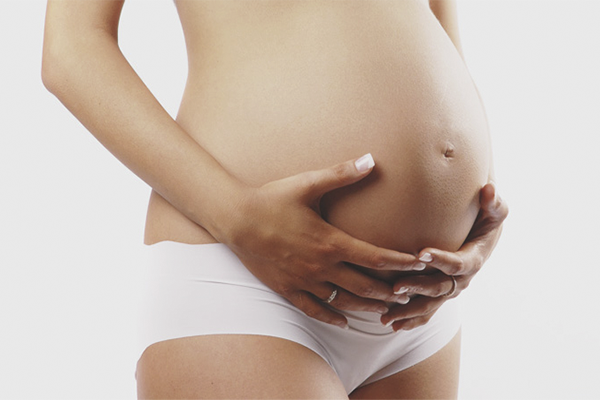
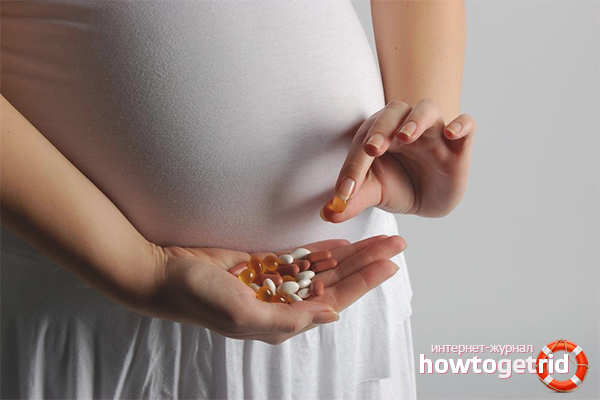
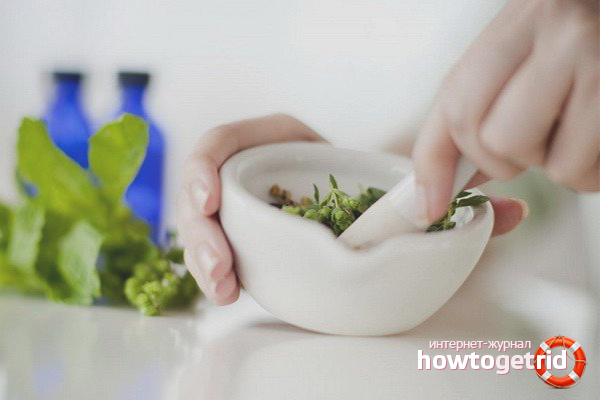

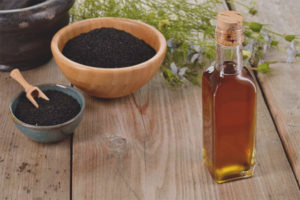

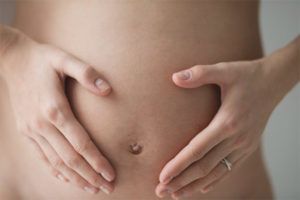

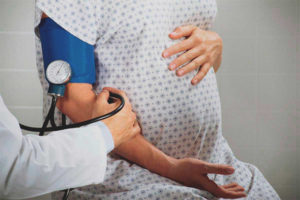
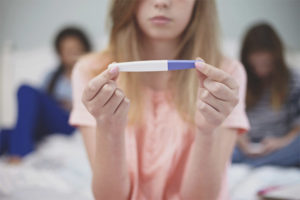
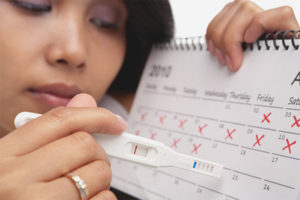
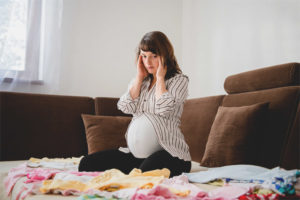
To send